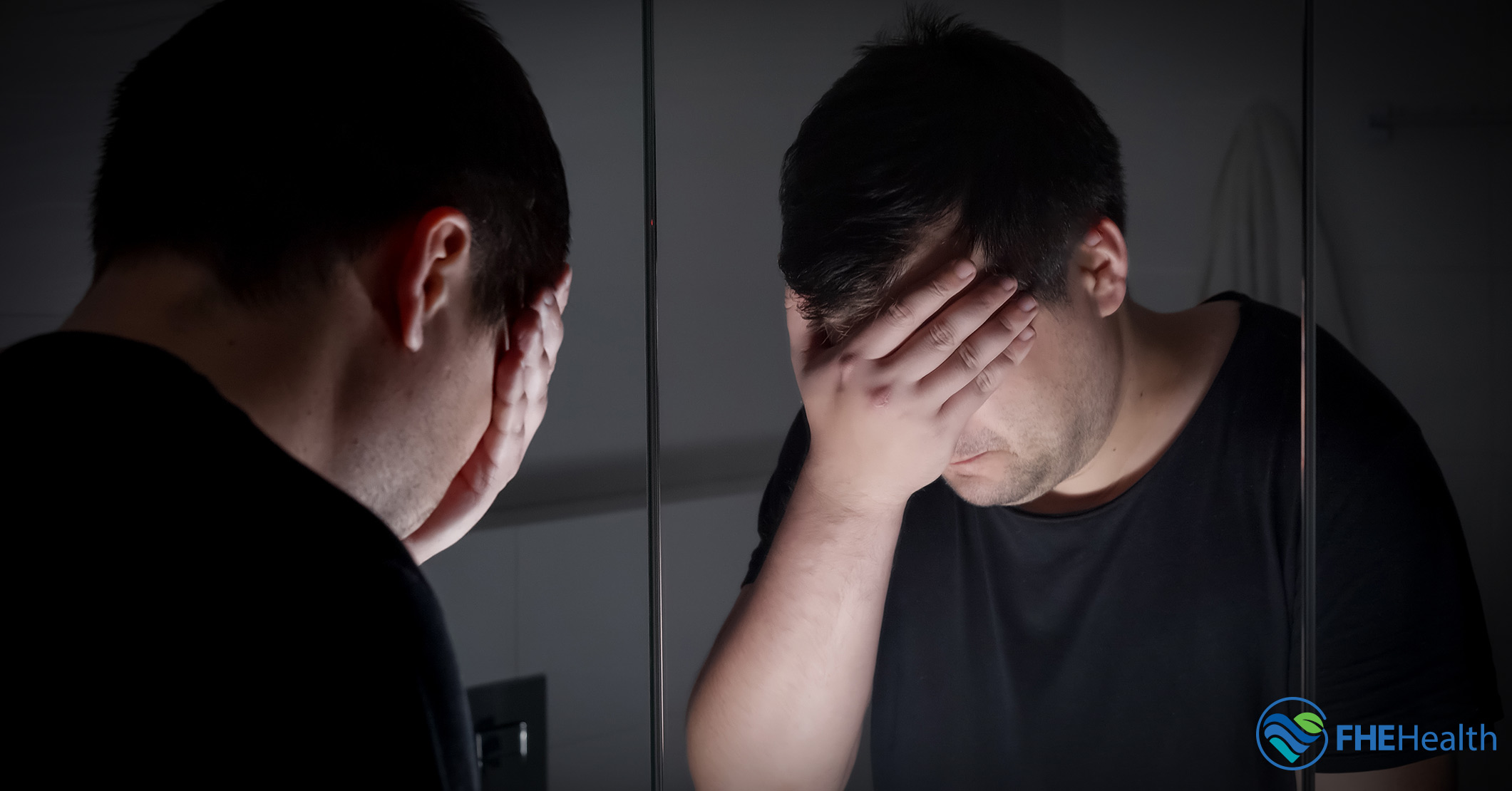
Body image issues are most often discussed in the media as a problem affecting women and girls, but body dysmorphia in men has been known about since at least the 1800s, when a French psychologist described it as “l’obsession de la honte du corps.” Body dysmorphic disorder (BDD) in men is an obsession with the body, often for flaws that don’t exist. While some degree of body insecurity is normal and widespread, male body image disorders frequently go along with some serious secondary problems that can threaten your health and well-being. Getting help for male body dysmorphia requires diagnosis, treatment, a lifelong commitment to positive self-esteem and good mental health and finding a therapeutic approach that works for you.
Defining Body Dysmorphic Disorder and Its Characteristics
Body dysmorphic disorder is a mental health condition that drives people to think obsessively about a perceived flaw in their appearance to the point that it interferes with normal life. BDD affects 1.7%-2.9% of the adult population of the United States, which works out to 5-10 million people. About 40% of people with BDD are male, but the prevalence among men increases in dermatology and cosmetic surgery settings.
People with BDD are generally assessed as having poor insight, and nearly half of the people who show signs of BDD are diagnosed as delusional. That means that the perceived flaw that concerns them is either very slight or completely nonexistent. Obsessive thoughts encourage compulsive behaviors, such as skin picking, mirror checking, excessive grooming and attempts to camouflage the perceived flaw. BDD can also drive men to get unnecessary cosmetic surgery or take other drastic measures to correct the issue they feel bad about.
The Intersection of BDD, Self-Esteem and Mental Health
It’s normal for men to try to downplay mental health issues or assure loved ones they’re fine when they really aren’t, and BDD often goes along with some serious mental health disorders. Depression is one of the most common conditions men with BDD show signs of, along with eating disorders and higher-than-usual levels of anxiety. BDD in men also tends to travel with secondary comorbidities, such as substance abuse disorder, various interpersonal problems and social anxiety disorder.
It isn’t clear what the relationship is between male body image disorders and various related mental health conditions. BDD might be an underlying cause for many mental health issues, such as depression and anxiety, that are triggered by the erroneous belief that the person has a physical flaw. The relationship could also run in the other direction, where a distorted self-image is a consequence of anxiety and/or depression. It’s not clear how BDD intersects with substance abuse — other than the fact that both often coexist in the same patients. Distorted body image can conceivably drive elevated drug and alcohol abuse, but it’s just as likely that BDD in men can emerge as a symptom of addiction.
Seeking Treatment and Support for Body Dysmorphia
Treatment of male body dysmorphia starts with getting a diagnosis from a qualified medical or mental health practitioner. This diagnosis is usually based on a thorough psychological evaluation that assesses various risk factors and disturbed thoughts, feelings and behaviors. The evaluation should also consider your personal, social, family and relevant medical histories. The doctor might also consider any visible signs and symptoms you’re showing, such as wounds from picking or obvious attempts to dress or use makeup to conceal the perceived flaw.
After getting a clear idea of what the problem is, your doctor can help you work up a treatment plan based around three main approaches: talk therapy, medication and inpatient care.
Cognitive Behavioral Therapy (CBT)
Cognitive behavioral therapy is a preferred approach for many behavioral and mental health issues. This is a generally drug-free method that focuses on drawing out open and honest communication from the patient, combined with teaching strategies for managing intrusive or disturbed thoughts. CBT is usually done with the direct guidance of a trained therapist, who may be a medical doctor, PhD-level psychologist or licensed clinical social worker (LCSW). The duration, frequency and treatment plan of sessions depends on the details of the patient’s condition and the needs of the person being treated.
Medical Approaches
Medical doctors and psychiatrists have the option to prescribe various drugs to help manage BDD in men. A common approach is to use antidepressant and antianxiety medications to stabilize the underlying condition driving the BDD. These are often SSRIs and other common depression/anxiety medications. Other medical options include various sedatives, medications directed toward managing specific symptoms or other drugs your doctor thinks could help. It’s worth noting that the FDA hasn’t approved any medication specifically for the treatment of BDD, but medical practitioners often have wide latitude to go off-label and try promising treatments with the patient’s consent.
Hospitalization for Body Dysmorphia in Men
Hospitalization is an extreme response to BDD, and it’s usually an option of last resort for managing acute mental health emergencies. This can be an attempt to deal with suicidal thoughts and actions, crippling anxiety and other severe issues that disable your ability to function. Inpatient care is almost always intended as a temporary measure to stabilize your condition, which will then move into outpatient recovery in some kind of community-based therapeutic setting.
Promoting Body Positivity and Healthy Self-Image for Men
Keeping up a realistic body image is an important part of having healthy self-esteem and avoiding the negative outcomes of BDD in men. If you feel that there’s something wrong with your body or you’re worried about a physical trait to the point it’s interfering with your life, you’re not alone. The mental health team at FHE Health is here to help you through a crisis or to get you started on the road to recovery. Contact us today to find out how we can help.






